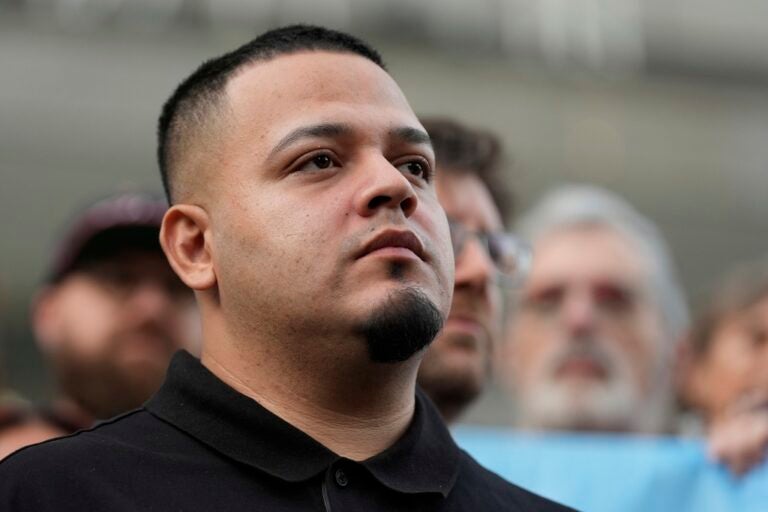The U.S. government is moving to deport Kilmar Abrego Garcia to Liberia as early as Oct. 31, escalating a case that has become a flashpoint in the national fight over President Donald Trump’s immigration agenda and the broader debate on human rights, asylum protection, and federal deportation powers.
The Department of Homeland Security outlined its plans in a Friday court filing, asserting that “Liberia is a thriving democracy and one of the United States’s closest partners on the African continent.”
The filing also emphasized that the country’s constitution “provides robust protections for human rights” and that Liberia is “committed to the humane treatment of refugees.” Federal officials argue that these conditions make Liberia a lawful destination, even though Abrego Garcia has no ties there.
Abrego Garcia, a Salvadoran national, became the center of national controversy after the government mistakenly deported him to El Salvador in violation of a settlement agreement — an error that resulted in his return to the U.S. earlier this year after a Supreme Court ruling.
Because he cannot be sent back to El Salvador, ICE has attempted to deport him to several African nations, including Uganda, Eswatini, and Ghana, before shifting to Liberia.
His legal team argues that the government is acting out of retaliation. Attorney Simon Sandoval-Moshenberg said, “After failed attempts with Uganda, Eswatini, and Ghana, ICE now seeks to deport our client, Kilmar Abrego Garcia, to Liberia, a country with which he has no connection, thousands of miles from his family and home in Maryland… Costa Rica stands ready to accept him as a refugee, a viable and lawful option. Yet the government has chosen a course calculated to inflict maximum hardship. These actions are punitive, cruel, and unconstitutional.”
A federal judge in Maryland has previously blocked his removal, and Abrego Garcia’s lawsuit claims the administration is abusing the deportation system as punishment for the embarrassment caused by the wrongful deportation.
The case ties into a larger national fight over asylum, deportation flights, border security spending, and immigration enforcement — issues that remain central to U.S. politics and high-value public policy debates.
Abrego Garcia has lived in Maryland for years, has an American wife and child, and previously won protection from being sent back to El Salvador due to a “well-founded fear” of gang violence, according to immigration court filings.
He is also seeking asylum in a separate legal proceeding. At the same time, he faces unrelated human smuggling charges in Tennessee, where he has pleaded not guilty and moved to dismiss the case, arguing that prosecutors are targeting him unfairly.
The Department of Homeland Security maintains it is within its authority to carry out the deportation, but advocates warn that the outcome could set a precedent for future asylum cases and immigration enforcement actions. With the Oct. 31 timeline now in writing, the showdown over the Abrego Garcia deportation appears headed for another urgent courtroom clash.









